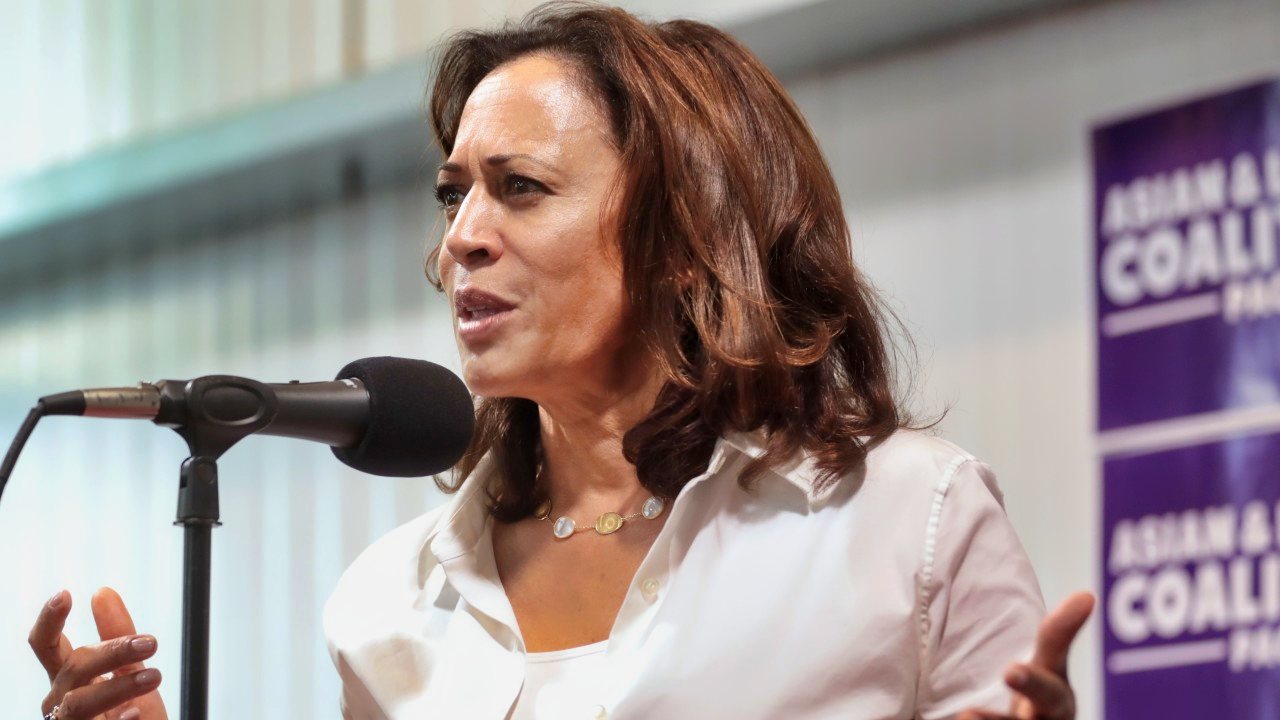We support our Publishers and Content Creators. You can view this story on their website by CLICKING HERE.

For one root cause of the U.S. immigration crisis, the Biden administration and candidate Kamala Harris should look no further than the recent presidential elections in Venezuela. Despite an overwhelming defeat on July 28, incumbent Nicolas Maduro refuses to concede. In the weeks following the election, thousands of protesters were arrested, and over 20 have been killed. Despite calls for their arrest, opposition leader Maria Corina Machado and the winning opposition candidate Edmundo González Urrutia continue to mobilize supporters to protest Maduro’s bogus victory. Unfortunately, peaceful protests won’t affect regime change. Nor will the United States formally recognize a victorious opposition. No, Maduro intends to stay, just as he did in 2018.
According to a recent report in El Tiempo, a newly published survey conducted by the Venezuelan firm, Meganailis reveals how much worse the U.S. border crisis is going to get: Approximately 100,000 Venezuelans plan to flee in the immediate future while a million more plan to emigrate before the end of 2024. And failed U.S. foreign policy is partly to blame.
America’s Foreign Policy Backwater: Latin America
For decades, Latin America has been known as the “backwater” of American foreign policy. Despite the impact illegal immigration and drug trafficking have had on Americans’ everyday lives, domestic policy priorities have mostly failed to translate into foreign policy priorities, with the sole exception of Plan Colombia, a bipartisan effort negotiated during the Clinton Administration that saved Colombia from becoming a failed narco-state.
Then, there are the familiar covert action failures like the Bay of Pigs and the Iran/Contra scandal which the far left in the U.S. and Latin America continue to point to as justification for a permanent “hands-off” policy in the region. Ardent Marxists on both sides of the Rio Grande have characterized the U.S. as a malevolent imperialist force. Addressing the United Nations in 2006, Maduro’s predecessor, Hugo Chavez, even declared that then-President George Bush smelled like Satan himself. Cartoonish as it may be, anti-U.S. propaganda has been incredibly effective, and the U.S. has done little to counter it. Lingering guilt in Washington over past debacles in the region has prevented policymakers from meaningfully engaging in pro-democracy statecraft.
A Fresh Start
Now, with the presidential election fast approaching here at home, the Biden Administration is under pressure to “do something” about Maduro. Early in his administration, Biden tasked Vice President Kamala Harris to address the “root causes” of illegal immigration. Maduro’s undemocratic, authoritarian regime is one such cause. Since Maduro assumed office in 2013, 20% of the Venezuelan population has fled the country, hundreds of thousands of whom have entered the U.S. illegally. As long as Maduro remains in power, Venezuelans will suffer. His disastrous socialist policies, violent persecution of political opponents, and partnerships with nacro-terrorist organizations like FARC, ELN and Hezbollah will create new waves of Venezuelan émigrés headed for the U.S. border.
Though the U.S. State Department officially recognized the Venezuelan opposition party as the clear winners of the presidential elections, the Biden administration has stopped short of recognizing Mr. González Urrutia as the president-elect, as that strategy has failed in the past: After the 2018 election, the Trump administration’s recognition of then opposition candidate Juan Guaido as the legitimate president of Venezuela did not affect regime change, despite the fact that several countries joined the U.S. in that effort. Instead, the Biden administration asked the leftist presidents of Mexico, Colombia and Brazil to convince Maduro to release the official election results and get on with a peaceful transition of power. For all involved, this was a performative gesture at best. Aside from being unbothered by, if not outright hostile to, U.S. concerns about Venezuela’s failed democracy, the three nations’ influence is limited.
The two countries with the power to influence Maduro are communist Cuba and communist China. Cuban intelligence services monitor and control significant parts of the Venezuelan government and the military, while China holds billions of dollars in Venezuelan debt. Both Cuba and China have benefited greatly from America’s relative disengagement in the region, as have Iran and Russia. None of these countries is likely to allow Maduro to go quietly, especially since U.S. military intervention is surely off the table.
Recent reporting suggests that the Biden administration has put amnesty on the table for Maduro and his cronies who have U.S. warrants out for their arrests. If the reports are true and Maduro ultimately rejects all offers, the Biden administration will appear to have prostrated itself at Maduro’s feet in vain. One can only hope that U.S. intelligence reports have suggested a clear path forward.
In all likelihood, regardless of what the current U.S. administration does, it will fall to the next administration to tackle the crisis in Venezuela and the crisis at the border. The corresponding foreign and domestic policies are inextricably linked. By offering unwavering, effective support to the duly elected opposition and the Venezuelan citizens who support them, the next administration might actually address the root cause of the U.S. immigration crisis.
About the Author
Christine Balling is Senior Vice President of Professional Affiliations and an Adjunct Faculty Member specializing in Latin American affairs at the Institute of World Politics located in Washington, DC. She is a former advisor to the US SOCSOUTH Commander.

 Conservative
Conservative  Search
Search Trending
Trending Current News
Current News 




